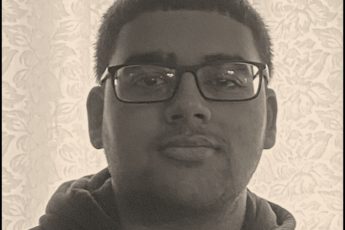 By Sebastien Cayo, Junior, Case Western Reserve University
By Sebastien Cayo, Junior, Case Western Reserve University
Networking and learning are continuing themes for our FirstGen Ahead cohort. At our January peer meeting, which was facilitated by Mariane St. Juste (a member of the first FirstGen Ahead cohort and a senior at Williams College), we met and benefited from the experience and wisdom of three amazing guests: Cristian Biviano, Martha Wagner, and Manu Edakara. Each shared their varied and interesting experiences in higher education, entrepreneurship, government, not-for-profit organizations, and a Fortune 500 company, and they offered relevant career advice to us.
Here is a summary of practical advice we received from Cristian, who is transitioning from an early career in higher education student affairs to a rotational leadership human resource role at a Fortune 500 company:
- Tailor your resume to the position you’re applying for, but you can still use similar language between different resume versions.
- Keep building connections – talk with recruiters before or after informational sessions and be intentional. Use LinkedIn to reach out or stay in touch with said connections.
- Build your teamwork skills.
Martha, who has extensive leadership experience in government and not-for-profits and has a passion of working with young people, offered three myths about employment post-college:
Myth 1: There is a distinction across government, not-for-profits, and corporations, but in fact, you can be an entrepreneur in all three. It’s important to understand who’s in charge, what rules govern each sector, and where the opportunities lie.
Myth 2: Each sector requires different skill sets. The two most important skill sets, independent of the setting, are a) writing clearly and concisely, and knowing how to communicate to different audiences; and b) active listening, being able to learn what’s important to the speaker.
Myth 3: Interviewing is a one-way experience. It is important to do research on the person interviewing you and the organization and to understand what’s in the job description. You should also be prepared to ask questions, give examples, and always have a question for the interviewer.
Manu has transitioned from starting his own businesses to supporting budding college student entrepreneurs to become “better dreamers” — having helped about 250 entrepreneurs and 80 companies valued at $26M. We learned from Manu that the most important asset is time and the most important skills are adaptability and genuine relationship building. For those student entrepreneurs looking to get started, Manu suggests that you first look to solve a problem and find dynamic people to help you.
We were inspired by the passionate stories of our guests and appreciative of their openness to share lessons they have learned to benefit us.












